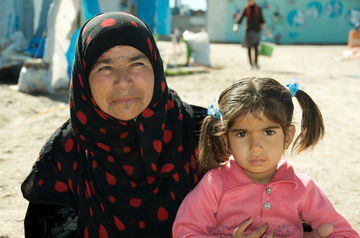
6 March 2018 – This year, International Women’s Day, celebrated every year on 8 March, comes at a time when many countries in the Eastern Mediterranean Region are severely affected by humanitarian and emergency situations, with adverse implications for the prevalence and consequences of various forms of gender-based violence, including domestic violence, coerced child marriage, sexual exploitation and trafficking.
Such violence negatively impacts the physical and mental health and well-being of thousands of women and girls and can lead to fatal outcomes. Yet access to essential multisectoral and coordinated health services to respond to such violence in these contexts remains gravely inadequate. More attention is needed for the inclusion of required essential health services and psychosocial support at all stages of emergency preparedness and response planning.
To draw attention to the plight of women and girls subjected to gender-based violence in emergencies, WHO, in collaboration with the United Nations Population Fund, UN Women and the Arab League, is organizing a side event during the upcoming Sixty-second Session of the Commission on the Status of Women on 19 March 2018. The theme of this joint side event is addressing violence against women and girls in humanitarian contexts in the Region with health as an entry point. During the event, WHO will launch Arabic versions of 2 key documents – "Responding to intimate partner violence and sexual violence against women: WHO clinical and policy guidelines" and "Health care for women subjected to intimate partner violence or sexual violence: A clinical handbook".
The event represents a small first step towards scaling up collective efforts, both at the global and regional level, to incorporate health services for women and girls subjected to gender-based violence in the essential health response in emergencies. Without striving to reach these women and girls with appropriate health services, we cannot claim to be realising our common goal of "leaving no one behind" and making progress in achieving the Sustainable Development Goals, particularly health-related Goal 3 and Goal 5 on gender equality.
Related links
Gender equality must be at the core of ‘Health for All”
International Women’s Day statement by WHO Director-General Dr Tedros Adhanom Ghebreyesus
Health care for women subjected to intimate partner violence or sexual violence: A clinical handbook | Arabic
Sixty-second Session of the Commission on the Status of Women


